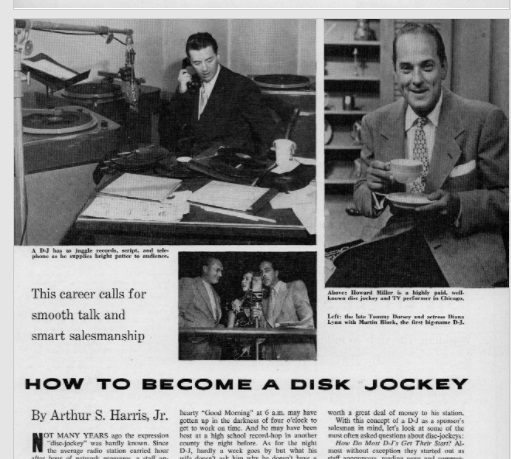 Sixty years ago this month, the November 1961 issue of Boys’ Life carried this article about what was probably the dream job of many a young man–a radio station DJ. The job meant odd hours and working weekends and holidays, but it was still a sought after position, and stations were hiring.
Sixty years ago this month, the November 1961 issue of Boys’ Life carried this article about what was probably the dream job of many a young man–a radio station DJ. The job meant odd hours and working weekends and holidays, but it was still a sought after position, and stations were hiring.
The author, DJ Arthur S. Harris, Jr., noted that in earlier years, the local station typically just carried network programs, with the staff announcer earning his pay merely by giving station ID. But programming was becoming local more and more, and the position of announcer often became that of DJ, spinning the records.
A few DJ’s in big cities could get salaries of over $25,000 per year, but starting pay was about $65 to $70 per week, which could probably grow to $150 a week.
To get started, the main advice was to practice. A tape recorder was an indispensible tool to record examples off the air to study, and to make practice tapes. Finally, audition tapes could be sent to radio stations. Schools and libraries might have a recorder that could be used, or a second-hand recorder could be had for about $50.
